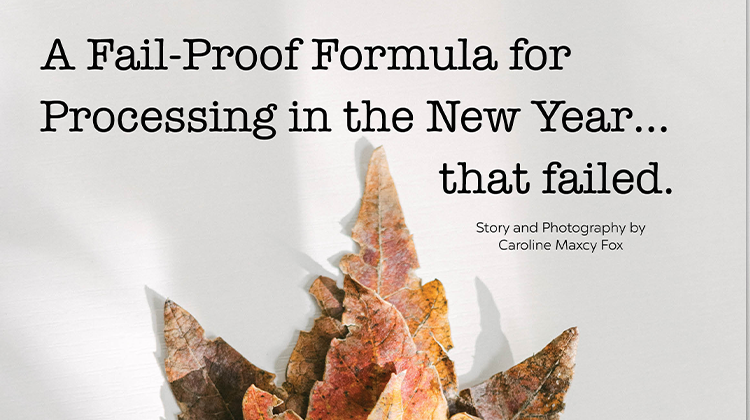By Rebecca Maglischo
As the dog days of summer hover over Central Florida, outdoor enthusiasts struggle for the motivation to participate in their favorite activities. Gardeners, however, are beginning to feel the excitement and promise of another season of triumphs, lessons, and the inevitable failures. Flipping through the seed packets and setting aside the ‘chosen ones,’ the toils from last season are recounted and the ideas for a fresh start begin to weave into a plan. In August, a gardener’s mind is filled with butternuts and beefsteaks, carrots that rival a rainbow, climbing vines, and new cultivars. By now, the failures of last season have morphed into learning experiences and the promise of a bountiful harvest fills the mind with an almost childlike glee. Gardeners possess a resilience gleaned from a hobby where failure speaks louder than success and boast an enthusiasm reserved for those who witness the miracles of nature over and over again.
IT’S NOT HARD TO MAKE A CASE FOR A GARDEN.
The backyard garden is at minimum a chance to learn something new and a good opportunity for some exercise and Vitamin D. Of course, the added vegetables are an improvement to one’s diet, too. But if you ask any gardener with a few seasons under their belt, it’s so much more. It’s where you work through life while you work for life. It’s mundane and miraculous. The garden is therapy and with just a little effort on the front side, the joys of gardening can spread through your home and rival the vines growing up your trellis.
PLACE YOUR GARDEN WITH CARE.
A well placed garden is a happy garden. Take time to walk your yard and consider the perfect location for the bounty to come. Most vegetable gardens need a bare minimum of 6 hours of sunlight, and the days are getting shorter. Consider how shadows from trees and fences might block portions of the garden as the seasons change. When you find the perfect sun-kissed spot, invest a little time and money into building up the soil by making a raised bed. Concrete blocks, untreated wood, or even giant water troughs make lovely options! Most importantly, place your garden where you will visit regularly, daily even. Short, regular visits help cultivate a deeper appreciation for all that is happening here, not to mention the actual cultivation of a delicious harvest.
PLANT YOUR HEART’S DESIRES.
Make a list of all the vegetables your family likes to eat and plant those. Look up charts for planting dates and use them to guide when your plants or seeds go into the dirt. If you really love something, plant several varieties or plant groupings several weeks apart to prolong the harvest. Don’t feel confined to planting in rows. Plants that grow bigger look lovely surrounded by lower profile herbs or flowers. Root vegetables tuck in nicely between those plants that bear their gifts above ground. Do yourself a favor and plant a row of sunflowers along the north edge of your space. These sentries stand as a beautiful beacon to the pollinators and an awe-inspiring sight to any passerby!



CALM DOWN ABOUT COMPOST.
Whole books are written on the subject of how to make compost. A new gardener can get lost in the scientific jargon and feel like a failure before they even break ground. But the decay of organic materials is the mundane tale of how literally everything returns to the soil, no magic or mystery required. While it is true compost contains the principal ingredients of fertilizer, the amounts are not overall impressive. What compost does, however, is improve the structure of the soil, increase the water-holding capacity, and provide micronutrients missing from many commercial fertilizers. Definitely find a spot to pile up grass clippings, leaves, and vegetable scraps from the kitchen. But rest easy that the Earth will have its way with these things whether you tend to them or not.
BE A LITTLE REBELLIOUS.
Perhaps the most lovely part of a garden is that it belongs to you. Though some gardeners may try to browbeat you with “rules for success,” seeds are cheap and rules were made to be broken. Don’t be afraid to push the edges of convention. Mix and match what you like and use information as guidelines. This little space is a place to cultivate plants and to cultivate your spirit, in good times and bad. In his book, Second Nature: A Gardener’s Education, Michael Pollen writes, ““The gardener learns nothing when his carrots thrive, unless that success is won against a background of prior disappointment. Outright success is dumb, disaster frequently eloquent. At least to the gardener who knows how to listen.”
IN THE GARDEN, NATURE IS HOSPITABLE; SHE IS WRESTLED INTO ORDER.
Here, we see hope for the defeat of chaos. And for many, this satisfaction in the yard is a salve for what humans cannot seem to maintain in day to day life. The lessons abound. The triumphs feel grander and the failures a bit softer. This is a stage to practice the ups and downs and to better understand the perpetually foggy abyss between the beginnings and ends.







